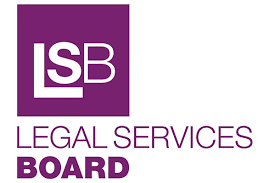Nothing has changed and everything has changed
Crispin Passmore • September 24, 2020
A review of the legal market since Legal Services Act 2007

Ten years on what has been achieved? That was one of the themes at the LSB’s summit today where I was honoured to join a panel of illustrious speakers. This blog is a summary of what I covered with some additions for completeness and a nod towards my American friends.
When I am talking to US State Bars and Supreme Courts I am often asked what has changed since 2007. I always start by reminding them passing legislation achieves very little – real change only started in 2012 once the SRA could licence ABS and that is just one part of a package of reforms that have been delivered since then. There is no magic solution to access to justice problems and the context of the US, with its unauthorised practice of law regime that makes a pre LSA07 E&W look like a liberal fantasy. But what has changed in the E&W?
The elite law firms and high street still look much the same from the outside. It is easy to think nothing has changed but the reality is that traditional models have, overall, not been able to grow over the last ten of fifteen years like they did for 30 years before LSA2007 and while new entrants remain small they are taking up the growth opportunities.
Our horizons are usually fairly limited – our dreams of the future are usually limited by our experience of the present. Yet look carefully and all of market has been touched by reform - not just the emergence of ABS that make up something like 1 in 10 firms now, but multi disciplinary practices (MDPs), solicitors in unregulated firms and a resurgence of innovation in traditional law firms.
From Axiom, United Lex, Elevate, Factor, Obelisk, LOD through to the Big Four, Aria-Grace Law, The Legal Director, high street MDPs, retail legal services such as Rocket Lawyer, Legal Zoom and the Formations Company, Farewill, Hybrid Legal, Peninsula and F-LEX etc. Other will name their own favourites but this list covers everything from writing a will, through small business services to complex corporate disputes.
What this means is that customers of all sorts have more choice – though they are a long way from consistently exercising that yet. Importantly, solicitors also have more choice - where they work and how they practice for example. And the Solicitors Qualifying Examination will increase that choice to how they train – with many of the new entrants developing exciting new routes that increase opportunities.
Overall, I think that there is a gradual restructuring happening in the market. Consolidation in personal injury, investment in corporate firms such as DWF
and more to come. I have blogged previously on the impact of the pandemic
but it strikes me that a strong balance sheet is increasingly important to support investment and scale.
While growth has come predominantly from innovators. These are often new entrants like those listed above but not exclusively are they non lawyer models. Traditional firms or solicitor led ABS also growing and/or innovating - see Pinsent Mayson, Bryan Cave Leighton Paisner, Keystone, Taylor-Rose for examples of innovation in response to the changing market. That is competition in practice. And even the magic circle firms increasingly have operations in Belfast, Sheffield, Manchester or elsewhere to develop competitive responses in the face of client demand. At the corporate level at least consumers are demanding more and different.
Traditional firms still the very best at handling seriously complicated stuff - but they seem to me to try to pretend that simple stuff is complicated whereas new entrants are busy trying to make complicated stuff simpler and more predictable. That is often about multi disciplinary approaches and technology rather than better lawyers. And the mass of unmet legal need is low level stuff which the traditional market has not focused on.
So while something has changed there remains much to be done. Competition remains weak, as evidenced by lack of digitisation compared to rest of economy. Too much production still looks the same as in the 1980s, or even the 1950s. In fact far too many firms look just like all the others - named after men and run by them (hat tip Dana Denis Smith). Yet even here, hours after I spoke, Freshfields announced
the selection of Georgia Dawson as their next senior partner. She is, I think, the first woman leader of a magic circle firm. The LSA07 might not deserve the credit for that but back in 2011 it was the LSB that forced regulators
to require law firms to publish workforce diversity statistics in a uniform way.
Consumers obviously need support to choose and use legal services but we need more sophistication in how we apply that in different sectors. Given how hard it seems to navigate the legal market we should take comfort from the fact that those with serious issues do find their way to the criminal experts, the public law family and divorce lawyers and to those capable of handling serious disputes. The problem is the mass of problems that fester in the lives of ordinary people and small businesses - the problems that stop full participation in civil and economic life, limit potential and undermine a just society. Similarly the run of the mill legal services that corporate clients have increasingly taken in house because of their dissatisfaction with traditional city firms and are now outsourcing to enterprise legal services.
So how do we face the challenges? First, lets not be despondent. I hope that I have illustrated just how much change has happened. That is the foundation for the way forward.
E&W has led the world but the world is catching up. Not least in US where ABS are now happening in Arizona
and Utah. The US will shift quite quickly because they have scale and tech/digital infrastructure that is ready to dominate world’s legal market. Many of the legal businesses I listed above are from the US. They have learned a lot in E&W and will take it back to the US and it liberalises. So E&W needs to move bigger and faster with more reform.
A single independent regulator as per Professor Mayson’s Independent Review of Legal Services Regulation is obvious – though perhaps with carve our for the genuine referral Bar given that some fights will slow reform down in the bog.
We need greater transparency of price, quality and service indicators and customer feedback. Firms like those within the LawNet
group use a net promoter score and many digital services use Trustpilot or similar. Some such as Fullers Family Law
use Google reviews. While my preference is for a market solution, perhaps there is now a case for making these things compulsory? Perhaps the LSB and Consumer Panel should be tasked by the Competition and Markets Authority (CMA) with setting up the infrastructure – the data centre and on line presentation of that data – which would facilitate a commercial provider of a comparison site.
Finally, the industrial revolution took over 60 years so revolution in the legal market was never going to be overnight. Real change is happening and there is more to come - but there is no room for complacency. The CMA needs to hold regulators feet to fire to do more/faster. Government needs to support that. And the profession needs to embrace it so it can grow its way out of the pandemic.

The Legal Tech Fund ran the best event for innovators int he legal market that I have found. TLTF 2023 was a a great opportunity to learn new things but best of all were the connections made and friends seen. These enabled new discussions and deeper debates about technology, capital deployment and liberalisation. TLTF 2024 is just one year away - I'm already excited.









